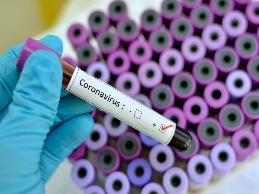One of the most positive things about more people surviving breast cancer, and cancer diagnoses in general, is that life after a diagnosis goes on, including one’s work life. Many are able to continue working through treatment, while others choose to focus on treatment and then return to work. Often less recognized is that while a clinical diagnosis is made on a specific date, and various treatments are done on specific dates, the side effects may linger on for weeks, months, and sometimes years.
Cancer, as many oncologists say, is a lifelong, chronic condition. For some this may be a direct result of the disease process, while for others it may be the result of side effects from necessary, but often potent, treatment protocols.
Just like with any other chronic condition, people who have had breast cancer can be fantastic employees. Some return to work and continue on as they did prior to their diagnosis. Others may need accommodations to be the best employee they can be.
The following are some potential areas of accommodation that may assist someone who has had a diagnosis of breast cancer:
Need for ongoing medical treatment, follow-up appointments, and monitoring:
- Allow for a flexible schedule
- Allow employee to telework
- Allow for additional leave time
Need for an ergonomically adjusted workspace due to lifting restrictions, pain management, and so on:
- Provide workspace adjustments to desk height, monitor height, chair, arm support, and reach ranges for equipment and materials
- Provide ergonomically appropriate tools
- Allow for breaks from repetitive tasks
- Modify workspace layout to avoid tasks done over the head
- Allow time for physical movement to help circulation
Need for supports with cognitive processing:
- Allow for self-paced workload
- Adjust supervisory method to allow for prompting, adjusting instructional or management method, breaking large tasks into smaller tasks
- Allow for one task to be completed before the next is presented
Need to manage fatigue:
- Allow for periodic rest breaks
- Allow for a modified schedule
- Redesign workspace to bring all necessary materials within easy reach range
- Limit physical exertion required
- Move workspace closer to door, break room, or restroom
- Provide personal mobility device to maneuver around workspace without exerting more effort
- Allow telework from home and remote access to meetings
While wearing pink brings awareness to the needs of those who are living with or have survived breast cancer, providing accommodations concretely changes the lives of those who are affected, as well as strengthening the business as a whole.
For more information:
Accommodation Ideas for Cancer
EEOC Fact Sheet: Questions and Answers About Cancer in the Workplace and ADA









